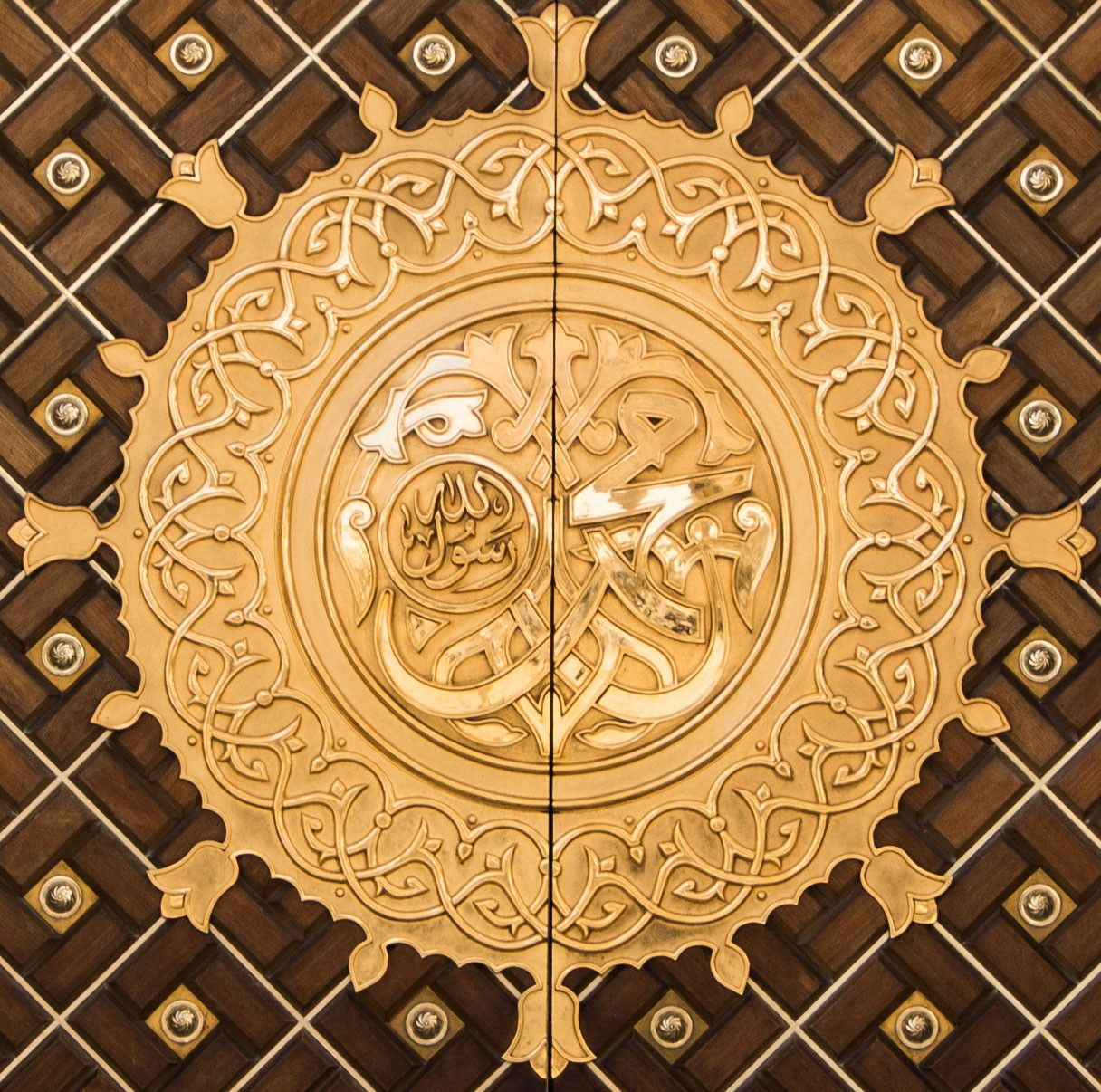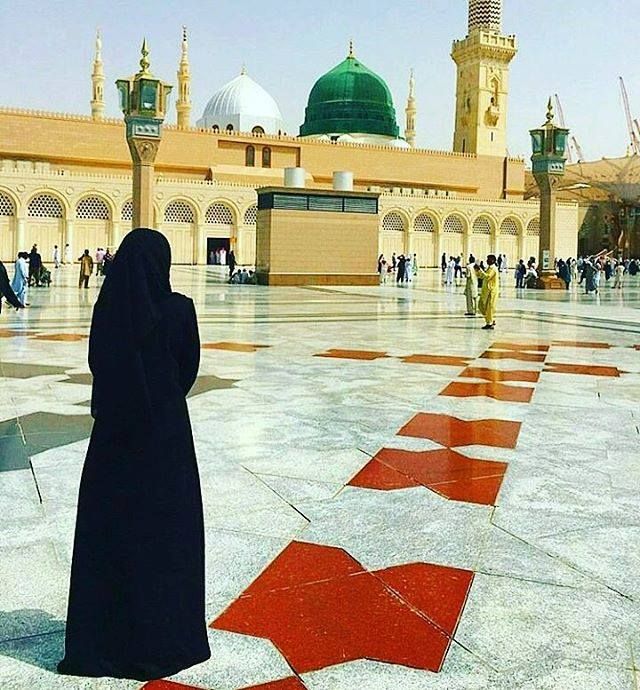The Women Who Guard the Prophet's Mosque
Source: Huffington Post
By Mashal Abbasi; I write, obviously
To be in the city of the Prophet is a blessing in itself, but to be there during Ramadan, that is a whole other story. Women surround me as I make my way towards the gates of Masjid-E-Nabawi (The Mosque of the Prophet Muhammed P.B.U.H), stopping a few feet from the doors to remove their shoes. They then line up, holding their bags out for inspection.

At the entrance of each gate are two women covered in black from head to toe. They stand tall, even wearing black gloves. Nothing can be seen of them except their eyes. One by one, they look through the contents of each bag. I see one taking out a bar of chocolate, stating that food isn’t allowed in the mosque, while another confiscates a juice box. They toss items aside, relentless, and usher worshippers — including myself — into the mosque.
They are called Mursheeda, “those who guide.” They aren’t just security guards; they are scholars of Islam, women with a purpose. While some worshippers may not even pay attention to them, others have had their fair share of unpleasant encounters with the Mursheeda. These women are stern, and they have to be. Thousands pour in and out of the mosque around the clock, and they are essential to establishing crowd control.

The Mursheeda aren’t all necessarily employees of the mosque; some are volunteers. They stand tall, scattered throughout the mosque on the lookout for any suspicious or illicit activity. I see a woman using her cell phone to take a picture of the beautiful interior. Almost immediately, I see a Mursheeda moving towards her. She takes the phone, deletes the picture, hands it back to her and walks off without explanation.
Even inside the mosque, I note that the faces of the Mursheeda are covered. It is because women may take pictures of them and show them to their husbands, brothers, or even worse, upload them on social media. This is why cell phones with cameras are not permitted in the holy mosque. The Mursheeda are extremely devout Muslims, and apart from other women, only show their faces to immediate male family members.
They are striking, even though they can hardly be seen. It’s in the way they stand, with a greater purpose. They are the guardians of the Mosque of Muhammed P.B.U.H, the greatest man to have ever lived, according to Islam. I note how one has a perfect winged liner, and catch a glimpse of a sparkly watch on the wrist of another. It reminds me that beneath their stern demeanor, their rigid backs and strict voices, they are also simply women.
I see two other Mursheeda guiding women towards seating areas. “Yallah baji,” one says loudly, motioning as traffic police would, towards two elderly Pakistani women who seem overwhelmed by the crowd. ‘Yallah’ roughly translates to ‘come on’ in Arabic, while ‘baji’ is an Urdu word used to address older women. It intrigues me, their use of multiple languages. “Asseyez-vous,” I hear another instruct, telling a group of women to sit down in French. I later learn that the mosque employs women of a number of different nationalities including, but not limited to, Pakistani, Turkish, Egyptian, Algerian and Moroccan. The mosque attracts people from the world over, so it is essential to hire employees who speak different languages.
Each member of this carefully-selected force of women must fulfill two requirements. She must live in Medinah, and she must be able to speak Arabic fluently. If you look closely, you will note that the Mursheeda can be distinguished by one of two things, either a pink card stuck to the front of their burqas, or a green and white seal on their sleeves. A Mursheeda with a pink card is in training, and is currently serving as a member of the guard. A Mursheeda with a seal on her sleeve has completed her training and is at a higher rank. She is an Islamic scholar, and can be approached with regard to any religious questions you may have.
Masjid-E-Nabawi is anything but simply a mosque. It includes a number of offices, a lost and found, a library, a clinic and a school specializing in the teaching of the holy Quran. Most importantly, it is the resting place of the Prophet Muhammed P.B.U.H, who I have come to visit and pay my respects to. These women have led me to him, and for this they shall be greatly rewarded.


